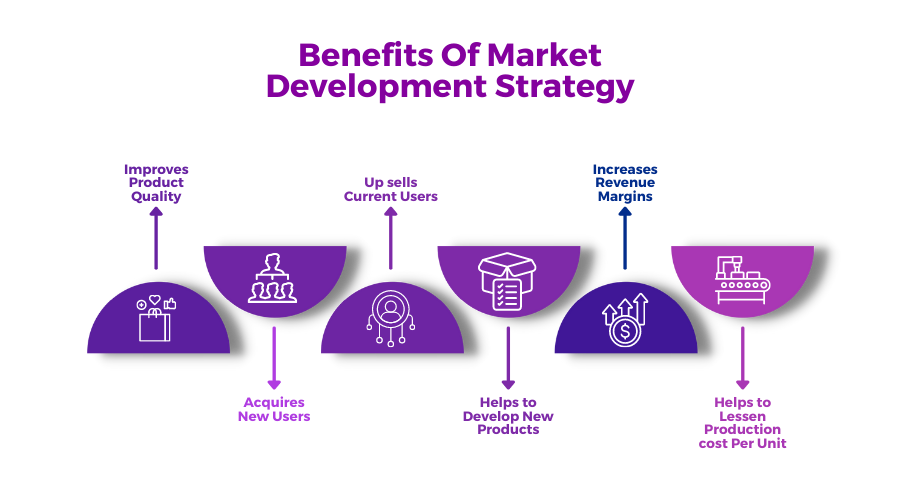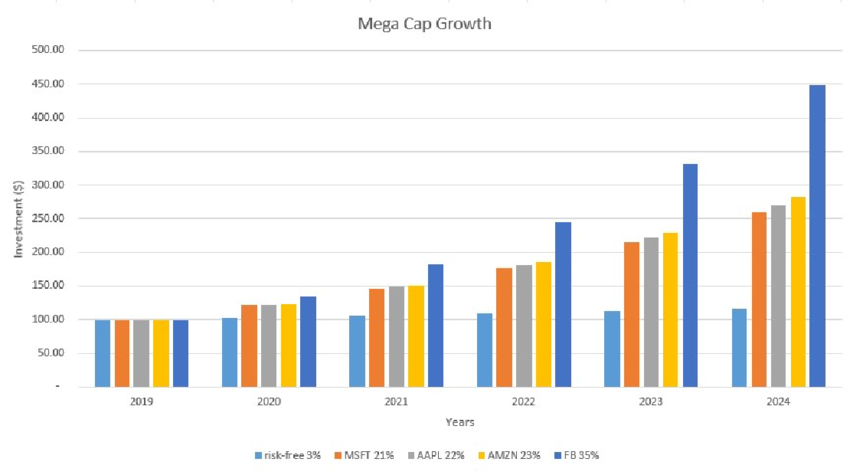Navigating Digital Waters: Growth and Marketing Insights for Hedge Funds
What are Hedge Funds?
Hedge funds are alternative investment vehicles that cater to sophisticated and high-net-worth investors. These funds are managed by skilled professionals known as hedge fund managers who employ various investment strategies to generate returns. Unlike traditional mutual funds, hedge funds have greater flexibility in terms of investment choices and can employ leverage, short selling, and derivatives to potentially increase returns. In today’s competitive financial landscape, harnessing marketing insights for hedge funds is essential for effectively communicating their unique strategies and value propositions to potential investors, enabling them to differentiate themselves and attract the right clientele.
Hedge funds often target absolute returns rather than beating a benchmark index, making them attractive options for investors looking for diversification and potentially higher returns. However, due to their complex nature and higher risk profile, hedge funds are typically restricted to accredited investors who can handle the potential risks involved.

Source: GeeksforGeeks
Benefits of Investing in Hedge Funds
Investing in hedge funds can offer numerous benefits, especially in a market characterized by higher volatility. Hedge fund strategies are designed to take advantage of market conditions, offering the potential for higher returns compared to traditional investment vehicles.
One key benefit of hedge funds is their ability to employ various strategies that can thrive in different market environments. For example, trend following strategies aim to identify and capitalize on market trends, regardless of the overall market direction. Global macro strategies focus on taking advantage of macroeconomic trends and events across different asset classes and regions. Fixed income relative value strategies seek to exploit price discrepancies in fixed income securities to generate alpha.
Hedge fund co-investments also play a valuable role in client portfolios. These investments allow investors to participate alongside the hedge fund manager in specific investment opportunities. By co-investing, investors can benefit from the manager’s expertise and potentially enhance their overall returns.
Market Insights for Hedge Funds
Market insights are crucial for hedge funds as they navigate the complex and ever-changing landscape of the financial markets. These insights provide hedge fund managers with valuable information and analysis to make informed investment decisions and develop effective strategies.
Understanding Regulatory Risk in the Hedge Fund Industry
Regulatory risk is a crucial aspect that hedge fund managers need to navigate in today’s complex financial landscape. For non-U.S. fund managers operating in the United States, specific regulatory issues can become potential hurdles in their business operations. The following U.S. regulatory issues should be carefully considered:
- CFIUS (Committee on Foreign Investment in the United States): Non-U.S. fund managers need to manage the implications of their investments on U.S. national security, as well as potential risks associated with critical infrastructure and sensitive industries.
- Sanctions (OFAC): Compliance with the Office of Foreign Assets Control regulations is essential to prevent violations of U.S. sanctions laws, ensuring that investments do not involve prohibited entities or jurisdictions.
- The Volcker Rule: Non-U.S. fund managers need to understand and adhere to the provisions of this rule, which restricts certain proprietary trading activities and investments in private equity and hedge funds by U.S. banking entities.
- BHC Investors: Non-U.S. fund managers must navigate regulatory requirements and limitations on investments made by Bank Holding Companies (BHCs) and their affiliates.
Navigating these regulatory challenges requires an understanding of compliance obligations. Non-U.S. fund managers must ensure they have robust compliance programs in place, including comprehensive due diligence processes, risk assessments, and monitoring mechanisms. Regular internal and external audits can help identify and address any compliance gaps.
Analyzing Financial Markets
Analyzing financial markets is a crucial task for hedge funds seeking to make informed investment decisions. Staying informed about the global economy, geopolitical factors, and investment opportunities is essential to navigate the complexities of today’s financial landscape.
By closely monitoring financial markets, hedge funds can assess the potential risks and rewards associated with various asset classes and investment strategies. Identifying emerging trends, market fluctuations, and geopolitical events allows hedge fund managers to make proactive decisions and adjust their portfolio allocations accordingly.
One of the key aspects of analyzing financial markets is assessing the various types of risk that hedge funds face. Market risk, credit risk, and liquidity risk are just a few of the factors that can influence investment outcomes. Hedge funds use a variety of risk metrics, such as standard deviation, beta, and value-at-risk, to quantify and measure these risks.
Addressing Investment Objectives in Hedge Funds
When it comes to hedge funds, addressing investment objectives is a crucial element in creating a successful fund strategy. Hedge fund managers must carefully consider the specific needs and preferences of potential investors while aligning investment objectives with the overall fund strategy. This ensures that the investment approach suits the targeted market and maximizes potential returns.
Hedge fund managers pursue various investment objectives to meet the diverse goals of investors. These objectives can include capital preservation, income generation, and long-term capital appreciation. Capital preservation emphasizes the importance of safeguarding the invested capital, while income generation aims to provide regular and consistent income streams. Long-term capital appreciation, on the other hand, focuses on generating substantial returns over an extended period.
To tailor investment objectives effectively, hedge fund managers consider investors’ risk tolerance and time horizon. Risk tolerance refers to an investor’s ability to withstand and accept potential losses. Some investors tolerate higher levels of risk, seeking aggressive returns, while others prioritize capital preservation and prefer more conservative investment strategies. Time horizon, on the other hand, pertains to the duration an investor is willing to remain invested. Longer time horizons generally allow for more extensive investment strategies, while shorter horizons may require a more focused approach.
Utilizing Alternative Investments
Alternative investments play a crucial role in the strategies of hedge funds. These investments offer hedge fund managers the opportunity to diversify their portfolios beyond traditional financial instruments like stocks and bonds. By incorporating alternative investments, hedge funds can potentially enhance their returns and manage risks more effectively.
There are several types of alternative investments that hedge funds can utilize. Private equity, for example, involves investing in privately-held companies, helping them grow and eventually taking them public or selling them for a profit. Real estate is another popular alternative investment, allowing hedge funds to invest in properties or real estate projects to generate rental income or capital appreciation. Commodities, such as gold or oil, can be a valuable addition to hedge fund portfolios as they provide a hedge against inflation and geopolitical risks. Venture capital is yet another alternative investment that involves investing in startups with high growth potential.
Incorporating alternative investments allows hedge funds to diversify their portfolios across various asset classes and industries. This diversification can help reduce the overall risk of the portfolio by mitigating potential losses within a specific investment category. Additionally, alternative investments often have low or negative correlations with traditional financial assets, providing an opportunity for enhanced returns during different market conditions.
Developing a Market Neutral Strategy
In the midst of macroeconomic uncertainty, hedge funds are increasingly turning to market neutral strategies to navigate unpredictable market conditions. Market neutral strategies aim to generate returns by taking long and short positions in various securities, with the objective of generating positive returns regardless of the overall market direction.
The principle behind market neutral strategies lies in the notion that by taking long and short positions simultaneously, the fund can hedge against broad market movements and macroeconomic factors. This approach allows hedge funds to mitigate the impact of external market fluctuations, focusing instead on the relative performance of individual securities within their portfolios.
One of the key benefits of market neutral strategies is their ability to improve portfolio outcomes. By incorporating these strategies, hedge funds can achieve greater diversification and uncorrelated returns. Diversification offered by market neutral strategies allows the portfolio to spread risk across different asset classes, sectors, and factors. This diversification helps reduce the overall risk of the portfolio and can potentially enhance risk-adjusted returns.
Moreover, market neutral strategies provide uncorrelated returns, meaning they are not heavily influenced by market movements or macroeconomic factors. This independence from market conditions allows hedge funds to potentially generate positive returns even in challenging economic environments.

Source: https://chisellabs.com/glossary/what-is-market-development-strategy/
Managing Volatility and Liquidity Risk
Managing volatility and liquidity risk is crucial for hedge funds operating in today’s dynamic market environment. Volatility refers to the degree of variation in asset prices, while liquidity risk pertains to the ease of converting investments into cash without incurring significant losses.
In the context of hedge funds, volatility can have a profound impact on investment performance. Sharp market fluctuations can lead to significant losses if not managed properly. Therefore, it is essential for hedge funds to implement strategies that effectively navigate and mitigate volatility. This may involve employing hedging techniques, such as options or futures contracts, to offset potential losses during periods of high volatility.
Liquidity risk is another challenge that hedge funds must address. In times of market stress, liquidity can dry up, making it difficult to buy or sell assets at reasonable prices. Hedge funds need to carefully assess the liquidity profile of their investments and ensure they have sufficient access to cash to meet investor redemptions or take advantage of investment opportunities.
Identifying Opportunities for Growth
In the world of finance and investing, staying ahead of the curve means identifying opportunities for growth even in the most challenging of times. One such opportunity lies in the impactful advancements made through investments in education and social support for women. BlackRock’s Long-Term Capitalism research initiative has revealed that these investments can have a significant impact on economic output, leading to long-term sustainability and growth.
With the advent of a new, more volatile economic regime, there is a shift in the investment landscape. While volatility may seem daunting, it actually presents abundant opportunities for those who can embrace and navigate it. As markets become increasingly unpredictable, innovative strategies and nimble thinking can unlock hidden potentials and drive substantial returns.
One area that has showcased remarkable resilience amidst volatility is mega-cap growth, particularly in the technology sector. Investors are favoring these large, established companies for their ability to thrive in a rapidly changing environment. Mega-cap growth stocks offer stability, steady earnings growth, and the potential to adapt to emerging trends and disruptions in the market.

Source: ResearchGate
Strategies to Attract Investors to a Hedge Fund
In the highly competitive world of hedge funds, attracting investors is crucial for success. To stand out in a crowded market and secure the necessary capital, hedge funds must employ effective strategies to capture the attention and interest of potential investors. In this article, we will explore some key strategies that hedge funds can implement to attract investors and differentiate themselves from their competitors.
Establishing Clear Investment Goals and Objectives
Establishing clear investment goals and objectives is crucial for hedge funds in order to have a well-defined strategy. Here are the steps to follow when establishing these goals:
- Define the Purpose: Start by understanding the purpose of the hedge fund. Ask questions like, what is the fund’s mission? What are the long-term objectives? This will lay the foundation for all future decisions.
- Identify Target Investors: Determine the target audience for the fund. Analyze their investment goals, risk tolerance, and time horizons. This will help shape the investment strategy.
- Set Specific Goals: Clearly define the investment goals. This could include targets for returns, risk management, or diversification. Specificity is important as it provides clarity to investors and the fund’s management team.
- Make Goals Measurable: Establish benchmarks or metrics to measure the progress towards these goals. Measurable goals provide accountability and allow for effective performance evaluation.
- Align with Strategy: Ensure that the investment goals align with the fund’s overall strategy. The goals should reflect the fund’s unique approach and value proposition.
- Regularly Review and Adjust: Investment goals should be reviewed periodically to ensure they remain relevant in the ever-evolving market landscape. Adjustments can be made in response to changing market conditions or investor demands.

Crafting an Effective Investment Strategy and Process for Hedge Funds
Crafting an effective investment strategy is vital for hedge funds to achieve their long-term objectives and provide value to their investors. One crucial aspect of this process is aligning the investment goals and objectives with the specific needs of the hedge fund.
To begin, understanding the risk tolerance, investment time horizon, and desired asset allocation of the target investors is essential. This information helps determine the optimal investment strategy that will meet their unique requirements and maximize potential returns. By considering these factors, hedge fund managers can tailor their investment approach to suit the preferences and objectives of their investors.
Utilizing data analytics and market research is also crucial in the investment strategy development process. These tools provide valuable insights into market trends, potential risks, and investment opportunities. By leveraging data and market research, hedge funds can make more informed investment decisions and identify strategies that align with their investment goals and objectives.
An effective investment strategy should also account for regular review and adjustments. Market conditions and investor demands can change rapidly, and it’s important to continuously evaluate and adapt the investment approach accordingly. This allows hedge funds to stay responsive to market dynamics and ensure that their strategy remains relevant and effective over time.
Leveraging Valuable Insights from Financial Institutions
Hedge fund managers can gain a competitive edge by leveraging valuable insights from reputable financial institutions to inform their investment decisions. Accessing market research reports and analysis from institutions like J.P. Morgan Asset Management offers numerous benefits for hedge funds.
Firstly, these reports provide comprehensive market insights, highlighting key trends and developments that can impact investment decisions. By staying informed about the latest market dynamics, hedge fund managers can identify emerging opportunities and potential risks in various asset classes and sectors.
Moreover, research reports from financial institutions offer in-depth analysis and expert opinions, helping hedge fund managers evaluate investment strategies and assess potential returns. These insights provide a broader perspective and enable fund managers to make more informed decisions based on reliable data and market intelligence.
Integrating insights from financial institutions into the investment strategy enhances the overall risk management process. Hedge fund managers can mitigate potential risks by understanding the implications of regulatory changes, economic events, and industry-specific trends identified in the research reports.
Disregarding these insights exposes fund managers to the risk of making uninformed investment decisions. Without access to comprehensive market analysis, hedge funds may miss out on valuable opportunities or fail to adequately address potential risks, leading to underperformance and loss of investor confidence.
Incorporating market insights from reputable financial institutions into the investment strategy empowers hedge fund managers to make well-informed and strategic investment decisions, ultimately maximizing potential returns and delivering value to their investors.
Utilizing Professional Advice from Qualified Investment Managers
Utilizing professional advice from qualified investment managers is of utmost importance in the hedge fund industry. These experts possess the knowledge, experience, and analytical skills necessary to navigate the complexities of the financial markets and make informed investment decisions.
Qualified investment managers play a crucial role in helping hedge funds achieve their investment objectives. They have a deep understanding of various asset classes and investment strategies, allowing them to assess risks and opportunities in order to optimize portfolio performance. With their expertise, they can provide valuable insights and guidance to hedge fund managers, helping them make strategic investment decisions that align with their fund’s objectives and risk appetite.
Furthermore, these professionals are well-versed in compliance regulations and can ensure that hedge funds abide by the necessary legal and regulatory requirements. This is especially vital in the highly regulated landscape of the hedge fund industry. By relying on the assistance of qualified investment managers, fund managers can greatly reduce the risk of regulatory non-compliance, avoiding potential legal issues and penalties.
Maximizing Online Potential: The SEO Agency Connection
If you’re a hedge fund looking to attract potential investors and increase your online visibility, it’s crucial to contact a top SEO agency today. These experts specialize in digital marketing strategies, particularly in search engine optimization (SEO) and local SEO. By utilizing their expertise, you can enhance your online presence and effectively reach your target audience.
Contacting a top SEO agency today is essential for hedge funds looking to enhance their online visibility and attract potential investors. With their expertise in digital marketing and SEO strategies, they can optimize your Google Business Profile, encourage local reviews, incorporate local keywords, and build quality backlinks. Don’t miss out on the opportunity ency can conduct thorough keyword research and develop a strategy to optimize your to effectively reach your target audience and grow your hedge fund.

Baris Coskun
Baris Coskun is 8 years experienced SEO Expert that specializes in content and technical SEO strategy creation/implementation progress for large-scale, multilingual, and international targeting websites.





